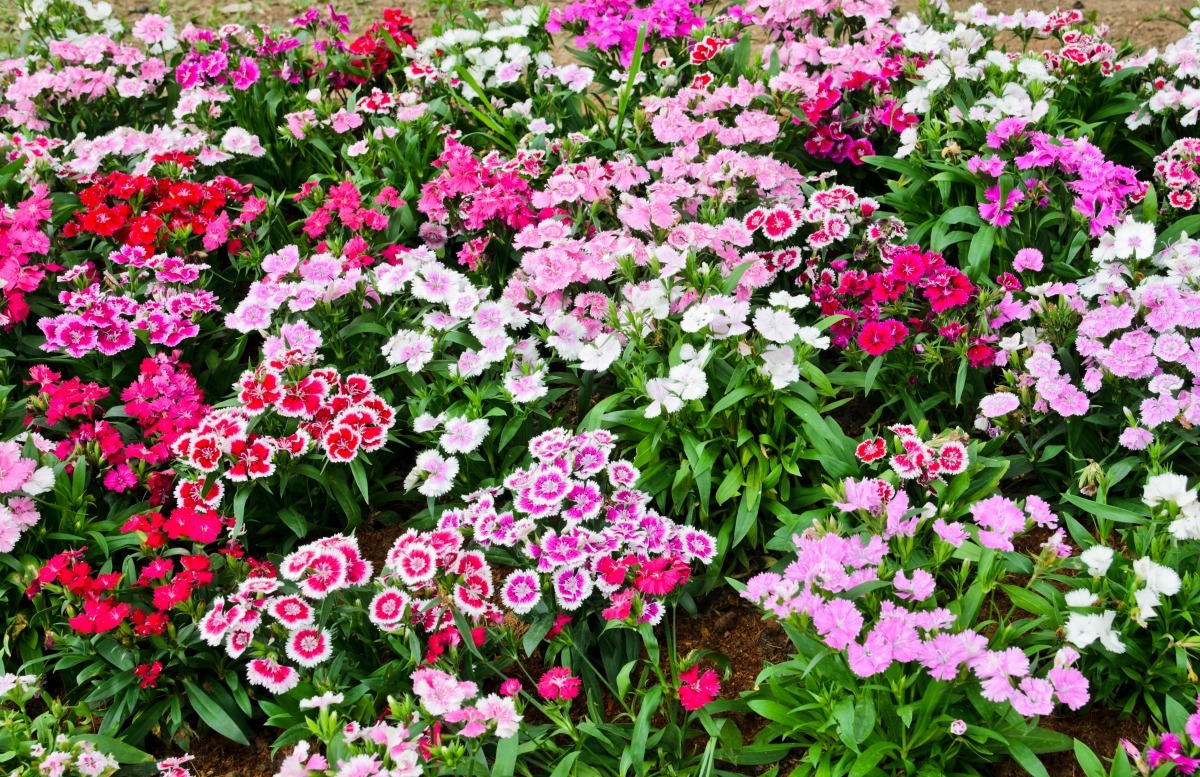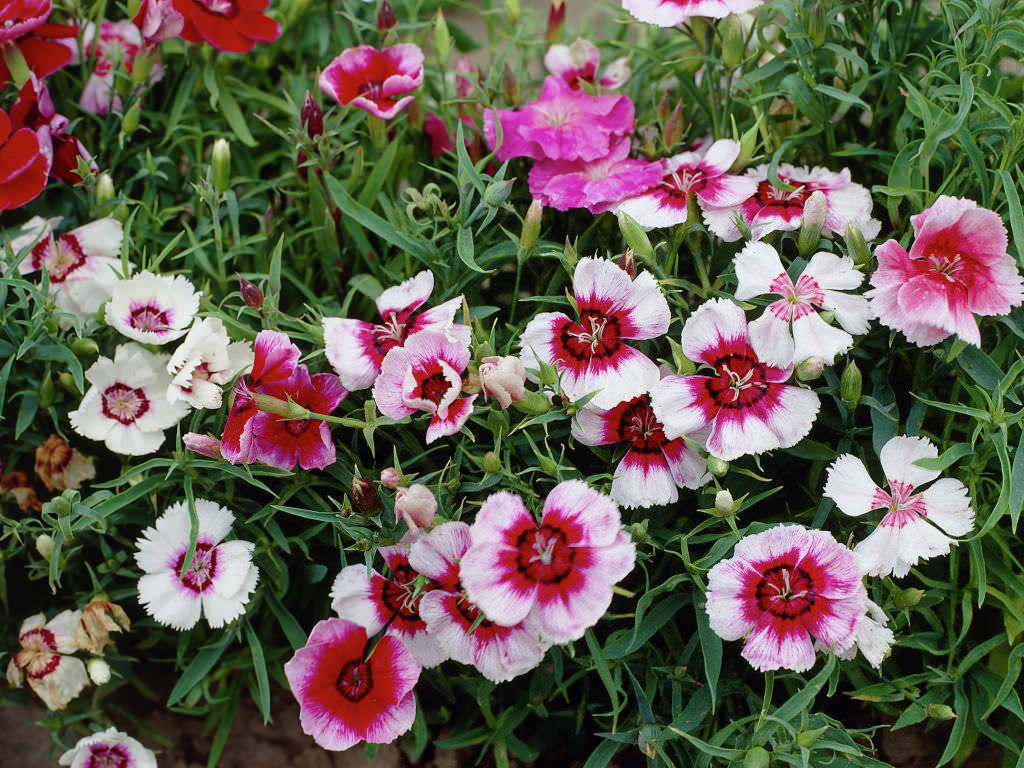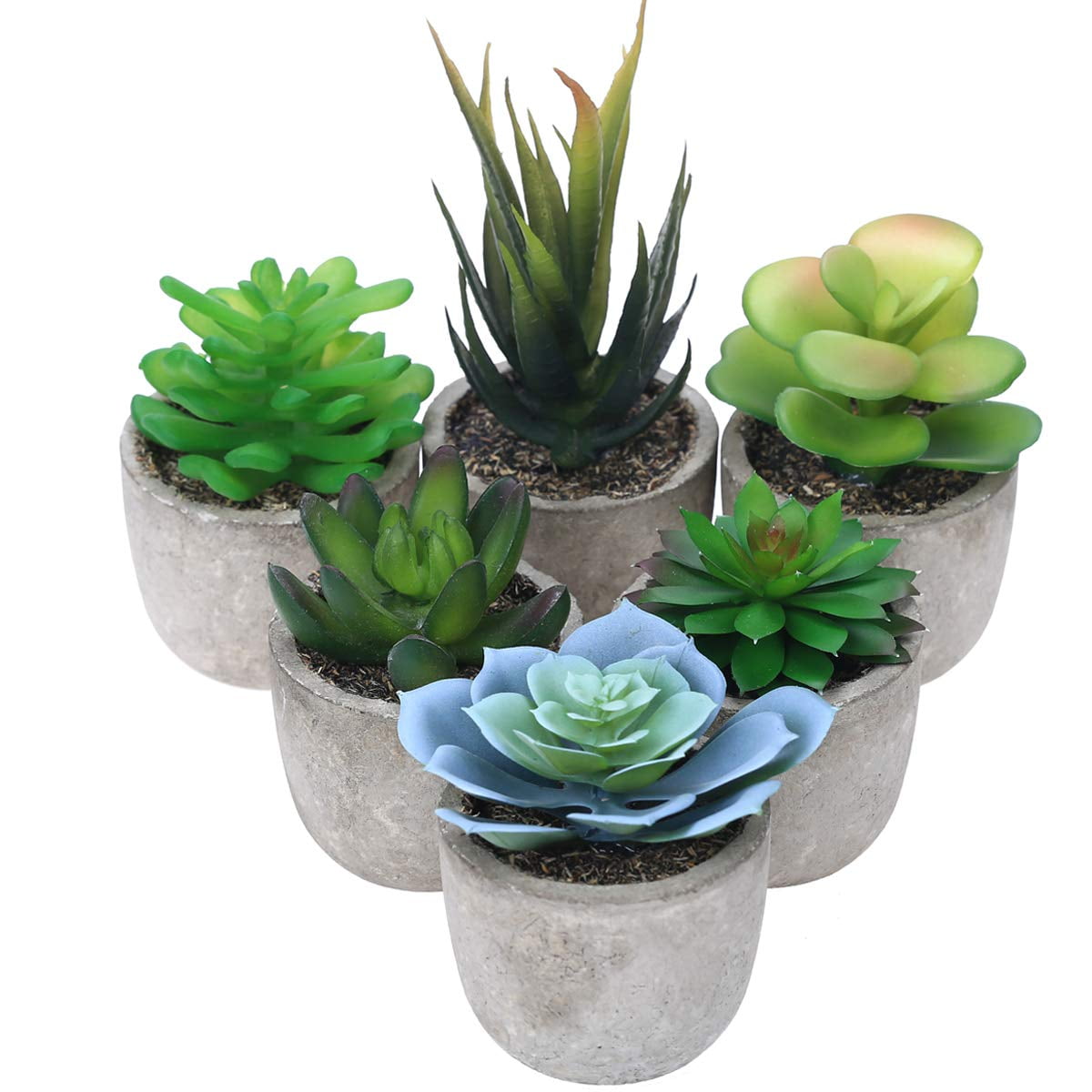Your When to plant dianthus images are available in this site. When to plant dianthus are a topic that is being searched for and liked by netizens now. You can Get the When to plant dianthus files here. Get all royalty-free photos.
If you’re looking for when to plant dianthus images information related to the when to plant dianthus keyword, you have visit the right site. Our website always provides you with suggestions for refferencing the maximum quality video and picture content, please kindly surf and find more informative video articles and graphics that match your interests.
When To Plant Dianthus. To induce branching at that point in the stem, cut the leggy branches around the leaf buds. Dianthus flowers grow best when planted in full sun to partial shade. Always check your expected frost dates so you can place protection or start in the greenhouse if needed. To be sure that your dianthus flower the year you grow them, they should be started indoors, about six weeks before the last predicted frost date.
 Dianthus Plant Companions Learn About Plants That Work From gardeningknowhow.com
Dianthus Plant Companions Learn About Plants That Work From gardeningknowhow.com
The dianthus plant is the quintessential cottage flower. Apply a general purpose fertiliser annually in early spring. How to plant dianthus plant seedlings out any time from spring to autumn in warm temperate areas, or spring to summer in cooler regions. Dianthus are shortlived plants, so cuttings are a good way of keeping your plants going. Prepare a hole in the ground large enough for the root ball and plant gently into it, firming the soil lightly back around with your hands. Yates varieties dianthus double pinks
Flowering from may to october, dianthus can be grown as hardy annuals, biennials or perennials.
Planting dianthus plants plant out english garden pinks and sweet williams between spring and autumn. Feed every 1 to 2 weeks with yates thrive roses and flowers liquid plant food. Space them about 30cm apart, and water in with a plant starter to help them establish quickly. Once established they cope well in dry conditions. If you plant too deep, water will have trouble draining away from the plant. If you have sensitive skin, wear gloves when handling the plants.
 Source: pinterest.com
Source: pinterest.com
Some varieties can tolerate a light frost. The foliage of dianthus can cause skin irritation in some people. You’ll then be able to replant them in late autumn or early spring when the soil is warming up, although these hardy plants can. When it comes to dianthus plant companions look for plants that share the same growing conditions. Choosing and preparing a planting site
 Source: dayliliesinaustralia.com.au
Source: dayliliesinaustralia.com.au
The dianthus plant is the quintessential cottage flower. The foliage of dianthus can cause skin irritation in some people. Planting dianthus plants plant out english garden pinks and sweet williams between spring and autumn. If anything, plant slightly higher than the native ground around the plant. If you have sensitive skin, wear gloves when handling the plants.
 Source: thespruce.com
Source: thespruce.com
Prepare soil by loosening to a depth of about 12 inches with a garden spade and adding 2 to 4 inches of compost (more if soil is mostly clay, less if soil is mostly sandy). During the summer growing season, any excessive or leggy stems growing from the plant can be trimmed back. Dianthus can also be mildly toxic to pets if ingested. Dianthus is very similar to carnations (dianthus caryophyllus), although it is somewhat smaller in both stature and flower size. Keep watered during main growth periods as they like a moist soil.
 Source: ilovehostas.net
Source: ilovehostas.net
Prepare a hole in the ground large enough for the root ball and plant gently into it, firming the soil lightly back around with your hands. Grow on plants undercover until they reach 8 to 10 cm in height at which point they’re ready to plant out. During the summer growing season, any excessive or leggy stems growing from the plant can be trimmed back. Watch out for snails, slugs, aphids and thrip. Consult the plant tag for specifics.
 Source: gardeningknowhow.com
Source: gardeningknowhow.com
Apply a general purpose fertiliser annually in early spring. You’ll then be able to replant them in late autumn or early spring when the soil is warming up, although these hardy plants can. Adult dianthus plants are best planted during the cooler months in spring or fall to encourage deep rooting. Always check your expected frost dates so you can place protection or start in the greenhouse if needed. To sow, press the seeds into the pot gently and maintain moisture throughout the germination period.
 Source: pinterest.com
Source: pinterest.com
This condition can occur when dianthus are planted in soils that do not drain well. Keep well watering in dry spells for the first 6 weeks; Watch out for snails, slugs, aphids and thrip. Water gently and keep moist through germination period. Cut back mounding dianthus varieties after the first flush of flowering completes in early summer.
 Source: gardeningknowhow.com
Source: gardeningknowhow.com
Dianthus flowers grow best when planted in full sun to partial shade. If you plant too deep, water will have trouble draining away from the plant. Dianthus flowers are very low maintenance. If anything, plant slightly higher than the native ground around the plant. Once established they cope well in dry conditions.
 Source: gardeningexpress.co.uk
Source: gardeningexpress.co.uk
If you are growing dianthus from seeds, you’ll need to start the process at least two months before the last frost. The ideal time to plant dianthus is in spring or autumn, making sure that the danger of frost has passed or it hasn’t arrived yet. Water gently and keep moist through germination period. If you are growing dianthus from seeds, you’ll need to start the process at least two months before the last frost. How to plant dianthus plant seedlings out any time from spring to autumn in warm temperate areas, or spring to summer in cooler regions.
 Source: growjoy.com
Source: growjoy.com
Always check your expected frost dates so you can place protection or start in the greenhouse if needed. It’s a good choice for growing with ornamental grasses or a pictorial meadow scheme, but it works equally well in a border alongside other herbaceous perennials. Cut back mounding dianthus varieties after the first flush of flowering completes in early summer. For biennials and annuals plant nursery starts outside in spring or sow seed indoors 6 to 8 weeks before your last frost date for bloom the same year. How to plant dianthus plant seedlings out any time from spring to autumn in warm temperate areas, or spring to summer in cooler regions.
 Source: garden.org
Source: garden.org
Dianthus is very similar to carnations (dianthus caryophyllus), although it is somewhat smaller in both stature and flower size. Let us show you how Always check your expected frost dates so you can place protection or start in the greenhouse if needed. Feed every 1 to 2 weeks with yates thrive roses and flowers liquid plant food. Dianthus flowers are very low maintenance.
 Source: thriftyfun.com
Source: thriftyfun.com
Trimming back some mounding dianthus plants can assist retain the plant’s form and promote healthy branching. To sow, press the seeds into the pot gently and maintain moisture throughout the germination period. If you are growing dianthus from seeds, you’ll need to start the process at least two months before the last frost. If you have sensitive skin, wear gloves when handling the plants. Dianthus can also be mildly toxic to pets if ingested.
 Source: blog.plantdelights.com
Source: blog.plantdelights.com
Cuttings (known as pipings) can be taken any time from june to september. These flowers are known as pinks or clove pinks and they belong to the carnation family. Cut back mounding dianthus varieties after the first flush of flowering completes in early summer. Yates varieties dianthus double pinks Flowering from may to october, dianthus can be grown as hardy annuals, biennials or perennials.
 Source: gardeningknowhow.com
Source: gardeningknowhow.com
Flowering from may to october, dianthus can be grown as hardy annuals, biennials or perennials. If you live in a climate with hot, humid summers, the flowers will perform best. You can do so in potting mix in seed trays or in small pots placed in a sunny spot or under grow lights where the temperature is between 16° and 21°c. Prepare a hole in the ground large enough for the root ball and plant gently into it, firming the soil lightly back around with your hands. This condition can occur when dianthus are planted in soils that do not drain well.
 Source: pinterest.com
Source: pinterest.com
To induce branching at that point in the stem, cut the leggy branches around the leaf buds. Watch out for snails, slugs, aphids and thrip. Dress up an entryway or balcony with a decorative container and plant with dianthus in varying colors, or with annuals such as sweet alyssum, lobelia, and dusty miller for months of continuous color. Space them about 30cm apart, and water in with a plant starter to help them establish quickly. How to plant dianthus plant seedlings out any time from spring to autumn in warm temperate areas, or spring to summer in cooler regions.
 Source: pinterest.com
Source: pinterest.com
When it comes to dianthus plant companions look for plants that share the same growing conditions. For biennials and annuals plant nursery starts outside in spring or sow seed indoors 6 to 8 weeks before your last frost date for bloom the same year. Dianthus plants can tolerate severe trims and often respond with more flowers and lusher foliage. If anything, plant slightly higher than the native ground around the plant. Let us show you how
 Source: extension.msstate.edu
Source: extension.msstate.edu
Apply a general purpose fertiliser annually in early spring. Once established they cope well in dry conditions. It’s a good choice for growing with ornamental grasses or a pictorial meadow scheme, but it works equally well in a border alongside other herbaceous perennials. Always check your expected frost dates so you can place protection or start in the greenhouse if needed. Cut back mounding dianthus varieties after the first flush of flowering completes in early summer.
 Source: thespruce.com
Source: thespruce.com
How to plant dianthus plant seedlings out any time from spring to autumn in warm temperate areas, or spring to summer in cooler regions. Space them about 30cm apart, and water in with a plant starter to help them establish quickly. Cut back mounding dianthus varieties after the first flush of flowering completes in early summer. Apply a general purpose fertiliser annually in early spring. They need light to germinate.
 Source: worldoffloweringplants.com
Source: worldoffloweringplants.com
Let us show you how To induce branching at that point in the stem, cut the leggy branches around the leaf buds. Prepare soil by loosening to a depth of about 12 inches with a garden spade and adding 2 to 4 inches of compost (more if soil is mostly clay, less if soil is mostly sandy). Space them about 30cm apart, and water in with a plant starter to help them establish quickly. It’s a good choice for growing with ornamental grasses or a pictorial meadow scheme, but it works equally well in a border alongside other herbaceous perennials.
This site is an open community for users to do submittion their favorite wallpapers on the internet, all images or pictures in this website are for personal wallpaper use only, it is stricly prohibited to use this wallpaper for commercial purposes, if you are the author and find this image is shared without your permission, please kindly raise a DMCA report to Us.
If you find this site serviceableness, please support us by sharing this posts to your preference social media accounts like Facebook, Instagram and so on or you can also bookmark this blog page with the title when to plant dianthus by using Ctrl + D for devices a laptop with a Windows operating system or Command + D for laptops with an Apple operating system. If you use a smartphone, you can also use the drawer menu of the browser you are using. Whether it’s a Windows, Mac, iOS or Android operating system, you will still be able to bookmark this website.







